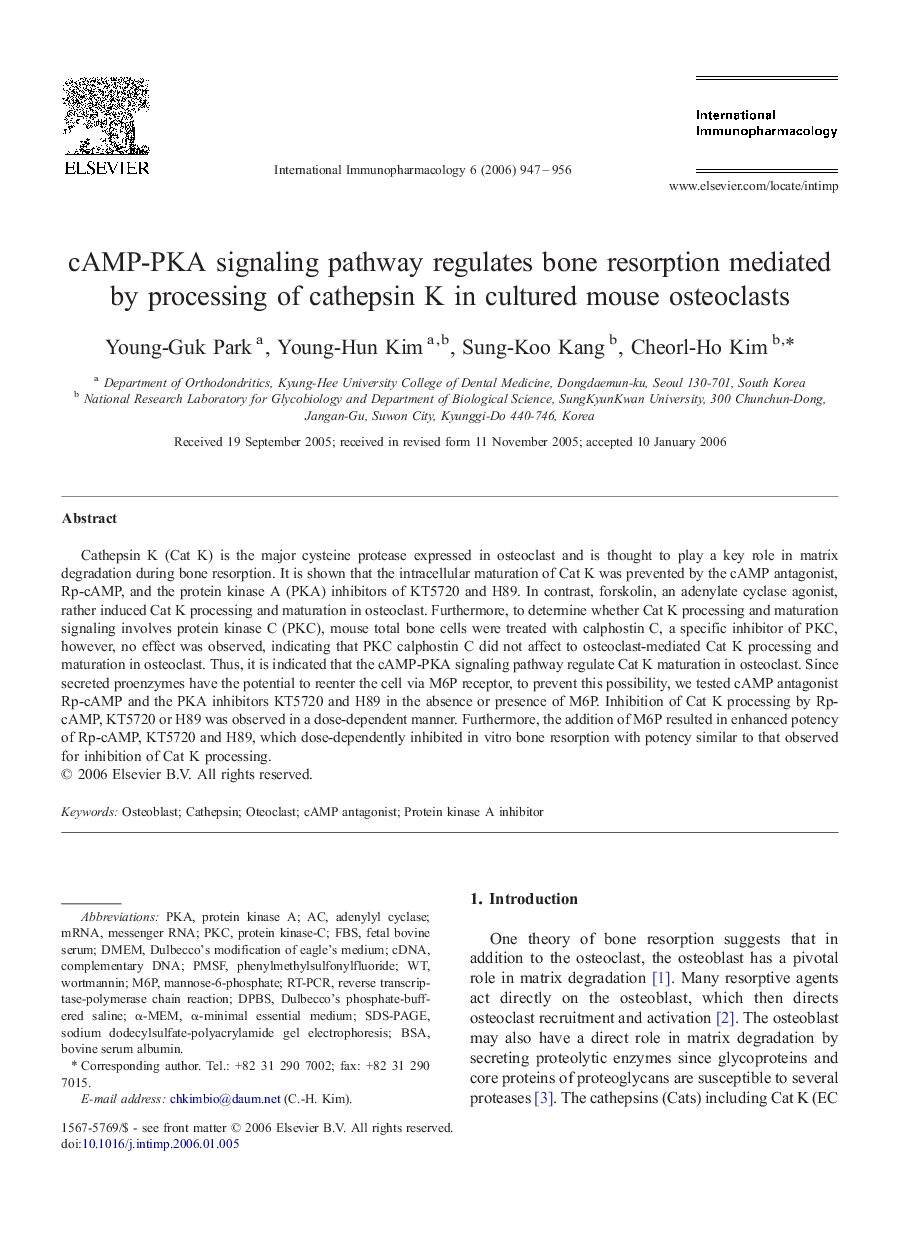| Article ID | Journal | Published Year | Pages | File Type |
|---|---|---|---|---|
| 2542590 | International Immunopharmacology | 2006 | 10 Pages |
Cathepsin K (Cat K) is the major cysteine protease expressed in osteoclast and is thought to play a key role in matrix degradation during bone resorption. It is shown that the intracellular maturation of Cat K was prevented by the cAMP antagonist, Rp-cAMP, and the protein kinase A (PKA) inhibitors of KT5720 and H89. In contrast, forskolin, an adenylate cyclase agonist, rather induced Cat K processing and maturation in osteoclast. Furthermore, to determine whether Cat K processing and maturation signaling involves protein kinase C (PKC), mouse total bone cells were treated with calphostin C, a specific inhibitor of PKC, however, no effect was observed, indicating that PKC calphostin C did not affect to osteoclast-mediated Cat K processing and maturation in osteoclast. Thus, it is indicated that the cAMP-PKA signaling pathway regulate Cat K maturation in osteoclast. Since secreted proenzymes have the potential to reenter the cell via M6P receptor, to prevent this possibility, we tested cAMP antagonist Rp-cAMP and the PKA inhibitors KT5720 and H89 in the absence or presence of M6P. Inhibition of Cat K processing by Rp-cAMP, KT5720 or H89 was observed in a dose-dependent manner. Furthermore, the addition of M6P resulted in enhanced potency of Rp-cAMP, KT5720 and H89, which dose-dependently inhibited in vitro bone resorption with potency similar to that observed for inhibition of Cat K processing.
